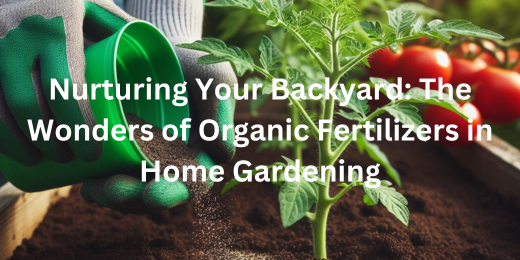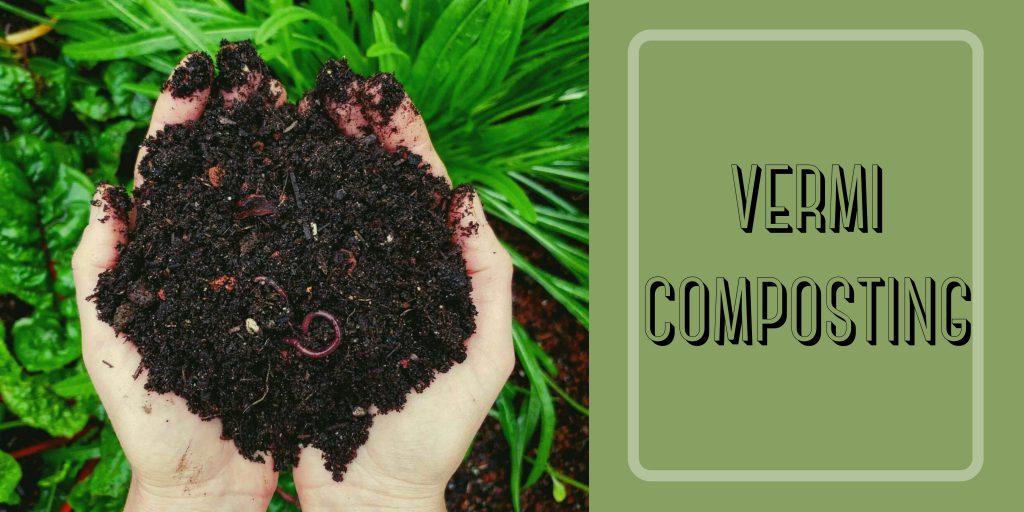
Nurturing Your Backyard: The Wonders of Organic Fertilizers in Home Gardening
Benefits of organic fertilizers
Introduction: Exploring the Essence of Organic Gardening
Organic fertilizers for home gardening offer a plethora of benefits for both plants and the environment. Unlike chemical fertilizers, organic fertilizers are derived from natural sources, minimizing environmental harm. Embracing organic fertilizers aligns with sustainable gardening practices, nurturing a biodiverse ecosystem in your backyard.
Furthermore, the benefits of organic fertilizers extend beyond plant health. These fertilizers enrich the soil with essential nutrients, fostering stronger root systems and vibrant foliage. Additionally, organic fertilizers improve soil structure over time, enhancing its water retention capacity and promoting long-term plant health.
Moreover, organic fertilizers contribute to a healthier environment by reducing chemical runoff and groundwater contamination. Choosing organic fertilizers minimizes the risk of chemical exposure to both gardeners and wildlife, fostering a safer gardening environment. Embracing these natural alternatives empowers gardeners to cultivate thriving gardens while preserving the planet for future generations.
Understanding the Benefits of Organic Fertilizers: A Holistic Approach to Home Gardening
Organic fertilizers for home gardening are gaining popularity due to their numerous advantages. Firstly, they promote healthy soil by enriching it with essential nutrients without causing harm to the environment. Secondly, these fertilizers improve soil structure and encourage beneficial microbial activity, fostering a balanced ecosystem. Lastly, they provide long-term benefits by sustaining plant growth and enhancing overall garden vitality.
One of the significant benefits of organic fertilizers is their ability to release nutrients slowly, ensuring a steady supply to plants over time. This gradual nutrient release reduces the risk of nutrient runoff, which can pollute water sources. Additionally, organic fertilizers contribute to improved plant resilience against pests and diseases, promoting natural pest control and reducing the need for chemical interventions.
In summary, embracing organic fertilizers for home gardening offers a holistic approach to nurturing plants while preserving the environment. Their myriad benefits include improved soil health, sustainable nutrient supply, and reduced environmental impact, making them an ideal choice for conscientious gardeners seeking a greener, healthier approach to cultivation.
Types of Organic Fertilizers: From Kitchen Scraps to Compost Gold
Organic fertilizers for home gardening come in various forms, ranging from kitchen scraps to compost gold. Kitchen scraps, such as vegetable peelings and coffee grounds, can be easily composted to create nutrient-rich soil amendments. Similarly, animal manure, such as compost gold, is prized for its high nutrient content and soil-conditioning properties.
Another common type of organic fertilizer is worm castings, which are produced by earthworms as they digest organic matter. These castings are rich in beneficial microorganisms and nutrients, providing an excellent source of nourishment for plants. Additionally, bone meal and fish emulsion are popular organic fertilizers derived from animal by-products, offering a balanced blend of essential nutrients.
In summary, the world of organic fertilizers for home gardening is diverse, offering a range of options to suit different preferences and gardening practices. From simple kitchen scraps to specialised products like worm castings and fish emulsion, there’s a solution for every gardener looking to nourish their plants naturally.

Practical Tips for Using Organic Fertilizers: Nurturing Your Garden Naturally
When using organic fertilizers for home gardening, it’s essential to follow some practical tips to maximise their benefits. Firstly, choose the right fertilizer for your plants and soil type, considering factors like nutrient content and application method. Secondly, apply organic fertilizers at the appropriate time, such as during the growing season or before planting, to ensure optimal nutrient uptake.
Lastly, monitor soil health regularly and adjust fertilizer applications as needed to maintain a balanced and thriving garden ecosystem. A crucial aspect of using organic fertilizers effectively is to avoid over-application, which can lead to nutrient imbalances and environmental pollution. Additionally, it’s advisable to complement organic fertilizers with other sustainable gardening practices, such as mulching and crop rotation, to enhance soil fertility and plant resilience.
By adopting these practical tips, gardeners can harness the full benefits of organic fertilizers while promoting long-term sustainability and biodiversity. In conclusion, nurturing your garden naturally with organic fertilizers involves careful selection, timing, and monitoring.
Environmental Impact: Why Organic Fertilizers are Eco-Friendly Choices
The benefits of organic fertilizers extend beyond plant growth to environmental sustainability. These fertilizers promote soil health and reduce the risk of water pollution by minimising nutrient runoff and chemical leaching. By fostering a balanced ecosystem, organic fertilizers for home gardening support biodiversity and contribute to long-term environmental conservation.
Unlike synthetic fertilizers, which can harm beneficial soil organisms and disrupt natural ecosystems, organic fertilizers work in harmony with the environment. They encourage the growth of beneficial microbes and earthworms, enhancing soil structure and fertility over time. Additionally, the use of organic fertilizers reduces the reliance on fossil fuels and synthetic chemicals, further mitigating the ecological footprint of gardening practices.
In essence, opting for organic fertilizers is not only beneficial for plant health but also for the planet. By choosing eco-friendly options for home gardening, individuals can play a part in preserving natural resources, protecting biodiversity, and mitigating climate change. Embracing sustainable practices like using organic fertilizers is a small yet significant step towards a greener and more sustainable future
Conclusion: Embracing the Green Revolution in Your Backyard Oasis
Embracing organic fertilizers for home gardening is not just about nurturing plants; it’s a commitment to sustainability and environmental stewardship. By opting for organic options, gardeners can promote healthy soil teeming with beneficial microorganisms, fostering a thriving ecosystem beneath the surface. This approach not only benefits plants but also supports biodiversity and reduces the ecological footprint of gardening practices.
Moreover, the benefits of organic fertilizers extend beyond the garden fence, contributing to broader environmental conservation efforts. Organic fertilizers help minimise nutrient runoff and chemical leaching, safeguarding water sources and aquatic ecosystems from pollution.
In essence, integrating organic fertilizers into home gardening is a step towards creating a greener, more sustainable future. By embracing the green revolution at home, we can all contribute to a healthier environment for generations to come. Get top-quality organic fertilizers from Uyir Organic Farmers Market or visit online at www.uyironline.in or www.uyirorganic.farm.